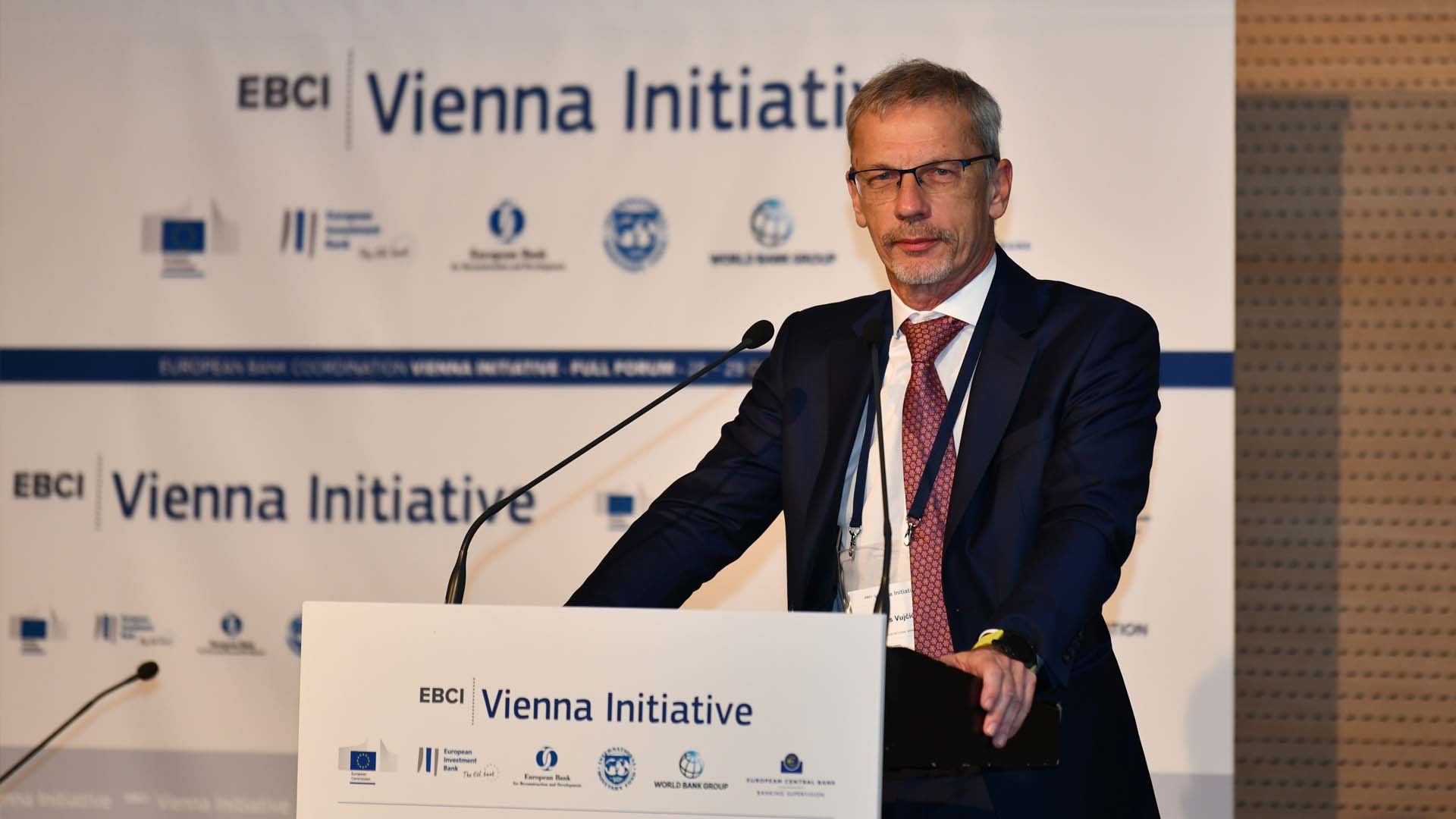
An annual conference organised by the European Bank Coordination Vienna Initiative and the Croatian National Bank started today in Split.
Boris Vujčić, the CNB Governor and Chairman of the Vienna Initiative Steering Committee, gave the opening speech at the conference. Vienna Initiative Full Forum participants will discuss current economic developments in central, eastern and south eastern Europe, challenges faced by central banks in the post-epidemic period, the promotion of sustainable growth, the role of financial institutions in fostering green transition, new financial instruments under the Invest EU programme, and financing for innovation among other topics. Conference participants include Vice-President of the European Bank for Reconstruction and Development (EBRD), Mark Bowman, the European Investment Bank (EIB) Vice-President, Lyiana Pavlova, World Bank Vice-President for Europe and Central Asia, Anna Bjerde, who will join virtually, as well as central bank Governors of Estonia, North Macedonia, Montenegro, Slovenia and Ukraine. Representatives of the International Monetary Fund (IMF), the European Central Bank (ECB), the European Commission (EC) and the European Investment Fund (EIF) will also be participating in the conference together with commercial banks and other financial sector stakeholders.
The Vienna Initiative is a unique public and private sector platform that brings together key international financial institutions, the EC, the ECB and relevant EU institutions, major cross-border banking groups and home and host country authorities. Their goal is to work to safeguard the financial stability in countries of central, eastern and south eastern Europe.
The Vienna Initiative was launched at the height of the 2008/2009 global financial crisis. It brought together international financial institutions, European institutions, home and host country regulatory authorities and the largest cross-border banking groups operating in countries of central, eastern and south eastern Europe. Its initial objectives were to support financial sectors in emerging Europe, prevent a disorderly deleveraging and keep credit flowing to the economies in the region. These objectives were successfully achieved at the time.
As the region recovered, the Initiative’s focus shifted to addressing the remaining and new challenges in the financial industry, including the resolution of non-performing loans, the development of local capital markets in emerging Europe, funding innovation and green transition.
